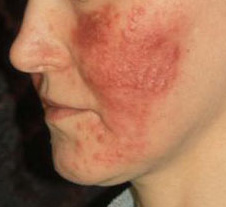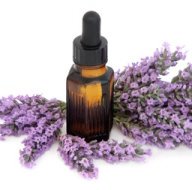
You might be interested in a herbal remedy for rosacea because you’re concerned about the side effects of prescription medications. Perhaps you just feel natural remedies are healthier. Maybe you also want to save money and avoid paying for expensive prescription drugs if you can. Whatever your reasons for preferring herbal remedies, it’s important to make sure you select remedies that are effective and that are also safe.
Of course, you should talk with your doctor about any herbal remedies you take or are thinking about taking, but unfortunately, many doctors aren’t very knowledgeable about herbs and other forms of alternative medicine, so he or she may not know how to advise you. Do your own research as well as talking to your health care providers.
Herbal Remedies For Rosacea
We’ll tell you about some of the most commonly used, and most effective, herbal treatments for rosacea. Keep in mind, though, we cannot give you medical advice. Talk to your doctor if you have questions about whether or not a herbal remedy for rosacea is safe and appropriate for you.
Feverfew
Feverfew is often used to treat migraines, arthritis, and menstrual cramps, but its anti-inflammatory properties make it a useful herbal remedy for rosacea, as well. When applied topically, in a cream or ointment, it helps prevent blood from pooling in the capillaries, the tiny blood vessels near the surface of the skin.
Tea Tree Oil
Tea tree oil is an essential oil extracted from an Australian plant called Melaleuca alternifolia. It has long been used for its antiseptic and antibacterial properties. When applied topically, it helps eliminate bacteria in clogged pores that lead to the acne-like symptoms frequently seen with rosacea. In fact, according to Web MD, studies have found tea tree oil to be as effective as 5% benzoyl peroxide in the treatment of acne. It is usually used in a cream or ointment of some sort but can be applied directly to the skin in small amounts. It should only be used topically; do not swallow it.
Licorice Root Extract
Licorice root extract contains numerous compounds, including coumarins, flavonoids, and phytosterols, which help reduce the redness and inflammation associated with rosacea. It can be used topically, in a cream or ointment, or taken internally. Check with your doctor or midwife before using licorice root extract if you’re pregnant; it may not be safe to use during pregnancy.
Red Clover
Red clover can be used in ointments or creams to reduce skin irritation and inflammation or it can be taken as a tea to reduce inflammation and to improve circulation. Talk to your doctor before using red clover if you take anticoagulant medication or if you have any type of cancer.
Lavender

Lavender, or lavender essential oil, can be applied to the skin topically in an ointment or cream to soothe irritated skin and reduce redness and discomfort. It’s probably one of the safest herbal remedies available, often used to treat conditions like diaper rash in infants.
Rosehip Oil
Rosehip oil is frequently used to treat damaged skin and skin conditions like eczema and rosacea. It soothes damaged skin and provides essential fatty acids that nourish the skin. It’s typically not recommended for use on very oily skin, however.
Our Favorite Herbal Remedy For Rosacea
Our favorite herbal remedies for rosacea are those offered by Zenmed. Zenmed offers a line of skincare products designed for people with rosacea, including an anti-redness mask, support serum, gentle cleansing cream, and a facial cleansing gel, all made from natural ingredients including herbs like lavender, licorice root extract, and tea tree oil. The unique combination of herbal ingredients is especially effective in treating rosacea because the different ingredients treat different symptoms in different ways. To learn more about our favorite herbal remedy, just follow this link to the Zenmed Website.
